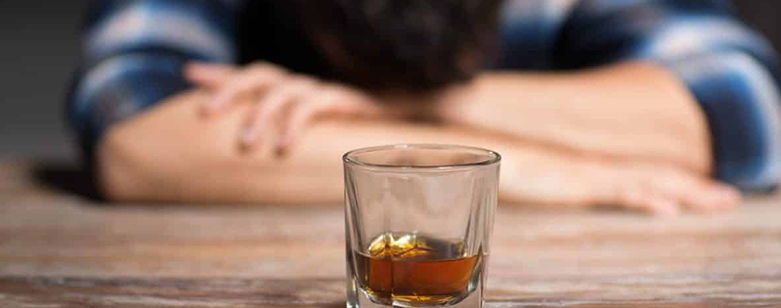Alcohol consumption has long been an issue in the hospitality industry and the coronavirus lockdown is a potential perfect storm to make this worse.
Your day probably looks very different now compared to a few weeks ago. Wake up, get up (eventually), have a shower (optional), get dressed (optional), have some breakfast (last night’s leftovers), decide today will be productive (again), do some chores, message a couple of friends, check out some training videos to watch this afternoon (best intentions), check the time, fart around until lunch, have lunch (whilst watching Escape To The Country)………. probably time for a beer.
It’s happening in thousands of homes across the country. As humans we aren’t designed for such lonely, boring lives. As a species we are programmed to want to push forward, to do, to interact, to achieve, to make decisions. Then one day it stops. It’s no surprise we seek out a relief from the boredom, and why not a beer or wine? They’re cheap, easily accessible and let’s be honest delicious.
The issue with this however is a double header. According to a report in 2008 the percentage of hospitality workers who had a ‘prevalence of hazardous alcohol use’ was 15%, the highest of any sector covered. In recent research by Alcohol Change UK during the coronavirus lockdown 20% of people are drinking more heavily and heavy drinkers are less likely to have cut down.
So as you can see we are in a time when these drink demons on our shoulders are thriving. We need to, collectively, keep an eye on this situation amongst those we know in this industry and ensure it doesn’t take control.
Let’s get something out of the way now. Someone who drinks more than the government suggested weekly intake of alcohol is not an alcoholic. This is a suggested amount of alcohol and not a clinical definition of someone suffering from alcoholism.
For the record the government’s suggested unit intake a week for both women and men is 14 units which looks like this:
13.5 units = 3 x pints beer (4%), 1/2 bottle wine (13%), 1 x 50ml spirit (40%)
I think it’s fair to say that if this was the definition most of our readers would fall into that category. So, whilst we should not ignore these guidelines, and indeed we should aspire to them, let us not take them as the norm.
Also, before we get into the nitty gritty let’s not think of this as only an article for alcoholics or those who think they might have a problem with alcohol. This is an article for anyone who is in anyway concerned about their levels of alcohol intake or who knows someone who they are a little concerned about. Whilst we are in lockdown someone with a little problem could easily find themselves as someone with a major problem and we need to be aware of ourselves and our friends/family more than ever before.
Why is coronavirus dangerous for those with alcohol issues?
The issues around mental health during this lockdown period are inextricably linked with alcohol misuse. Anxiety, stress and loneliness are all known to be reasons that people are more likely to turn to a bottle. In this time, arguably just as dangerous is boredom, especially for a group of people whose lives revolved around sociability.
With a lot of hospitality workers currently furloughed they find themselves locked at home, with nothing to do, no-where to go and, now the Job Retention Scheme is up and running, potentially money in their pockets ready to burn.
There is all of a sudden no structure, no definition between weekends and weekdays, no days off, no reason to get up or indeed go to bed at a specific time. When these basic lines in your life are taken away it’s hard to know when you’re stepping over them.
With no structure when do you stop? Or indeed start. When there is no reason to have a clear head the next day why have one?
This is a dangerous time for those with problematic drinking behaviours and those that have previously recovered. It is also a time that many will find themselves slipping from the ‘I like a drink’ category into the ‘I need a drink’ category.
What to look out for?
There is no test for this disease, but there are signs laid out by experts in the field which we can keep an eye out for in others and ourselves. The problem with this is denial is a serious issue when it comes to looking at ourselves, and deception an issue when others know they are being looked at.
Some of the most common symptoms of alcohol abuse are:
- Experiencing temporary blackouts or short-term memory loss
- Exhibiting signs of irritability and extreme mood swings
- Making excuses for drinking such as to relax, deal with stress or ‘feel normal’
- Choosing drinking over other responsibilities and obligations
- Becoming isolated and distant from friends and family members (this doesn’t have to be physical, are you avoiding phone calls and messages from people for example)
- Drinking alone or in secrecy (drinking alone can be ignored if you are self-isolating however if you are hiding the fact or the amount when speaking to people then lookout)
- Feeling hungover when not drinking
When looking at these symptoms try and be honest with yourself. Having one or two doesn’t mean you should immediately rush to a doctor it means you should be a bit more aware of yourself and your situation. If you are in anyway worried then at the end of this article are some people you can contact, there is no harm in having a chat, chances are you have the time on your hands currently.
If you are worried about someone else it can be a bit trickier to approach the subject, especially if you cannot speak to them face-to-face currently. Drink Aware have a section on their site looking at this issue and also have a very useful text chatline if you don’t want to be overheard by someone in your house whilst asking advice.
What can I do during lockdown to help?
If you look up advice on-line for this question most of it is built around those with a ‘normal’ 9-5 life in the pre-lockdown world, which can be immediately off-putting to those in the hospitality industry. However, there are some tips that can be useful.
Get a structure together in your new life – try to wake up at the same time each day, it doesn’t have to be 8am, find a time that works for you and make it realistic so you can get your 8-hour minimum sleep. Have proper meals at sensible times, you’re a bartender, you love flavour, play with food flavours not booze ones, you get to scratch that creative itch and do it whilst avoiding booze.
Find a ‘new work’ – You used to work too many hours a week, just because you aren’t using them for work those hours haven’t disappeared. Use them to do something other than sitting in-front of the TV or playing games on your phone. There are dozens of booze training programmes out there online currently but what about other skills? Learn a language, a new tool to your belt or pick up an old hobby.
Exercise – Yeah I know, everyone is on about it. The thing is your job used you have you on your feet all the time and suddenly you are sedentary. Not only is being fit good for you physically but also mentally, on top of that you will be going back to work at some-point and you don’t want to get injured in the first week and have to take time off.
Chat – However you feel most comfortable. Voice, video, text, whatever, just keep in touch. Your job used to be very sociable, going from 100 to 0 is not good. It just takes a bit more effort now is all.
Enjoy it – Sure it’s weird and odd and unusual but it’s going to stay this way for a while. Whatever it is you enjoy whether it’s books, TV shows, movies, games, jigsaws, cooking etc make sure you do enjoy them. Find like-minded people and team up with them online. Have fun, just don’t have bottle of rum each time you do.
Booze free days – Nominate a few booze free days each week. Make it easier by doing something ‘special’ those days. Order a delivery treat, make popcorn and binge a boxset, go for a run (if that’s your bag), use the money you would have spent on booze to buy yourself a treat that day/week/month.
More tips can be found thanks to Tim Etherington-Judge and the Healthy Hospo team here.
Where can I turn for help?
If you are worried about yourself or someone else, have questions or need some advice there are many people out there who can help. Below are a list of sites with advice and phonelines or online chat options. Don’t hesitate of you think it would help.
We aren’t trying to be preachy, we aren’t saying don’t drink (unless you want to in which case awesome). Hell I’m not stopping, but I sure as shit know I drank more than usual in the first couple of weeks of lockdown and have enforced 3 days a week of no drinking on myself. I have every intention of enjoying myself when this lockdown is over, I just need to make sure both my health and my bank balance will allow it.
Just keep an extra eye on yourself and your mates right now.
Drink Aware – A UK-wide independent alcohol education charity.
Alcohol Change UK – A merger of Alcohol Concern & Alcohol Research UK. They also have an App available (ignore the Dry Jan bit).
The Drinks Trust – The hospitality charity that has been doing amazing work before and since the lockdown has a health and wellbeing helpline and is specifically dedicated to those in hospitality.
Hospitality Health – A Scottish charity dedicated to supporting those who work in the hospitality industry.


